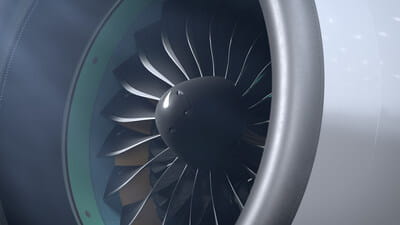During its second quarter results announcement today, RTX (previously known as Raytheon Technologies), which owns aero engine manufacturer Pratt & Whitney, announced that a “significant portion” of the PW1100G-JM engine fleet, powering the A320neo, will require “accelerated removals and inspections within the next nine to twelve months, including approximately 200 accelerated removals by mid-September of this year”. Pratt & Whitney said that it had determined that a “rare condition in powder metal used to manufacture certain engine parts will require accelerated fleet inspection”. The manufacturer stressed that the defect does not impact engines currently being produced.
On an earnings call, RTX chair and CEO Gregory Hayes, said that the fact the issue had been identified and was being addressed was important although he recognised there would be disruption for customers. Later in the call, president and chief operating officer Christopher Calio stressed that Pratt & Whitney would “continue to deliver both new engines and new spare parts across all product lines”. Calio estimated that by mid-September “approximately 200 PW1100 engines will be removed for enhanced inspection” and beyond that, Pratt also anticipates that approximately 1,000 additional PW1100 engines will need to be removed from the operating fleet for this inspection within the next nine to 12 months, adding “though the exact number of engines and the timing of those removals is not yet finalised”.
Calio noted that some of those engines that must be removed for inspection in 2023 and 2024 would already be forecasted for a regular shop visit during this time period, and “so the incremental impact to the fleet is still under evaluation”. He also added that Pratt & Whitney was “developing plans to optimise shop visit capacity within its network to complete these inspections as quickly and efficiently as possible”.
Pratt is also analysing any potential impact to other parts of its fleet, but Calio said that the current expectation is that they will less impacted based upon existing inspections, utilisation profiles and maintenance intervals.
Calio was not able to provide any guidance as to the financial impact associated with these renewals, which he said was still being analysed and would depend on a number of factors, including the result of the inspections, the amount of work needed to be done in our network shops, and of course the impact on our customers. “This is obviously a difficult situation for our customers, especially given the strong demand for travel,” he said. “We are truly sorry for the impact of this disruption and we will do all we can to support our customers.”
RTX CFO Neil Mitchill provided a confident guidance update of between $200 million and $275 million operating profit for the year, which includes the expected impact of the first 200 engine inspections. The impact of any further removals is not included in the guidance, Mitchill confirmed.
Analysts on the call were less than impressed with a third issue with the GTF engine from Pratt & Whitney, and specifically were concerned that there may be potential impact on Pratt’s reputation for reliability, with another questioning whether there was a “cultural issue” in the company’s engineering workforce. Both claims were dismissed quickly by Hayes, who stressed that the fact the issue was found was due to the company’s “strong process of fleet surveillance, evaluation, and taking corrective action that is used to support the safety of the fleet”, and noted that the issue was a manufacturing defect not a GTF design issue.
Hayes said: “This is simply a quality issue from a manufacturing problem, so I would say, look, we’re on top of it, we’ve got this. It’s going to be expensive. We’re going to make the airlines whole as a result of the disruption we’re going to cause them, and I think we’re going to work ourselves through it.
He added: “It’s not an existential threat to RTX; it’s not even an existential threat to Pratt. It is a problem, and we have them every day. We’ll solve it.”
To cope with the enhanced engine inspections, Pratt needs to accelerate expanding its 13 MRO facilities to expand 19, which Hayes says the company is going to do as well as “dedicate some spares to a rotable pool of engines to support some customers”.

